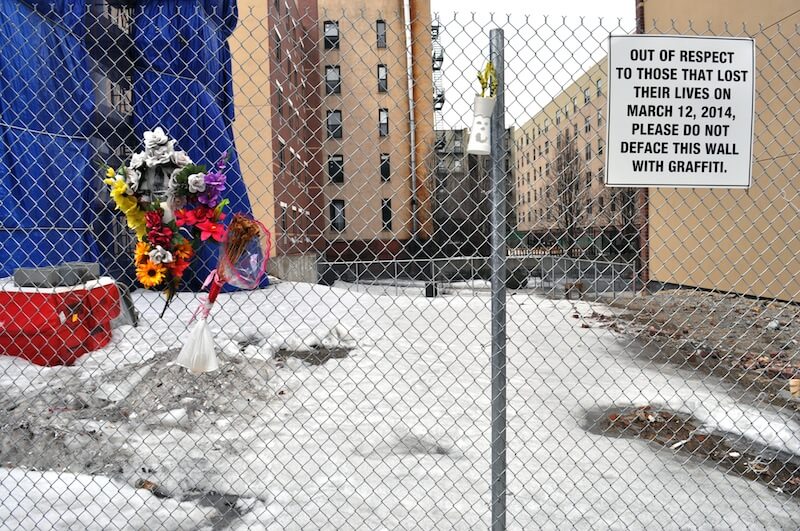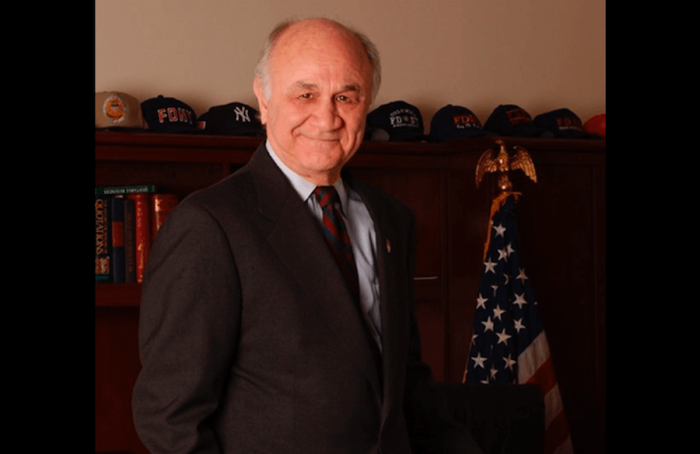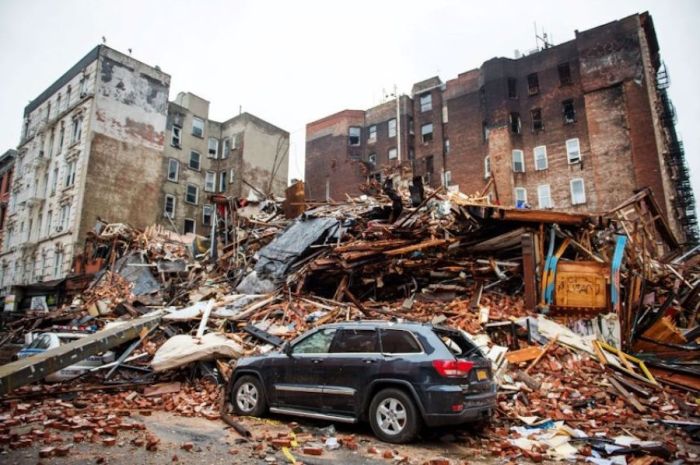One year after a quiet stretch of Park Avenue was rocked by a deadly gas main explosion, a chain link fence where two buildings once stood is sparsely adorned with flower bouquets and pictures the blast’s victims. Memories of the explosion are still fresh with East Harlem residents as they still mourn the eight neighbors they lost when a 127-year-old cast iron gas pipe exploded and leveled the structures that dozens called home. Local leaders and neighbors worry that Con Edison, which is responsible for the gas lines, has still not made things truly safe.
“It could happen again,” said Hector Pellot, who told Metro he has lived in El Barrio for 60 years. “No one knew that was going to blow. It caught everybody by surprise.”
Pellot pointed to the different parts of the block, which sits alongside four above-ground Metro-North tracks, where people he’s seen in the neighborhood for years still are — or used to be.
The events of last March 12 are still seared in his memory. Besides the eight who died, more than 70 others were injured.
“Everything was smoked up. I had thought a train blew up,” he told Metro. “I started running — I saw everyone else running.”
City Council Speaker Melissa Mark-Viverito, who has represented the neighborhood since 2006, stood alongside Mayor Bill de Blasio and emergency responders soon after the explosion.
Firefighters poured water onto the blaze within minutes, police helped evacuate the area and emergency personnel coordinated with multiple agencies and aid groups.
“It was really rough in the beginning trying to coordinate some of the city services,” Mark-Viverito said, especially since the explosion happened less than three months into a new administration. “The imperative was to make sure the affected families were stabilized and everyone was taken care of,” the speaker told Metro.
All of the families displaced by the explosion have settled into their new homes, although some left the neighborhood to be closer to family elsewhere in the city.
Mark-Viverito also said at least 20 of the 60 business affected by the blast applied for government loans to recoup losses and to get back on their feet.
The Council also worked with the administration and Con Edison to improve response protocols, with the Fire Department taking a more proactive role in responding to complaint about gas leaks.
Con Edison officials said where it used to do yearly check-ups of the citywide gas system, which contains 4,300 miles of mains, it has since started doing them on a monthly basis. But New Yorkers can also help. “We would really like the public to know if they smell gas to act fast, that’s a priority,” Con Edison spokeswoman Joy Faber said. The agency took ads out soon after the explosion to educate the public on what to do if gas is smelled. Residents appeared to take the message to heart.
In 2014, the Fire Department reported a 68 percent increase in calls around the five boroughs about gas smells from the year before — almost 43,700 compared to 26,000 in 2013.
One year later, East Harlem remembers 8 lives lost in gas blast

Carlos Llamas/Metro


















